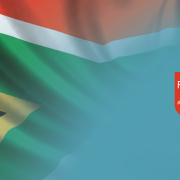|
Getting your Trinity Audio player ready...
|
In June this year we reported that South Africa was likely to be removed from the Financial Action Task Force’s (FATF) grey list after that organisation’s next plenary, which took place from 22-24 October. This has now happened, with the FATF announcing that it welcomed “South Africa’s significant progress in improving its AML/CFT regime”. The development has been welcomed across the public and private sectors.
The FATF is the international standard-setting body that oversees global compliance with anti-money laundering (AML) and counter financing of terrorism (CFT) rules. Its grey list refers to Jurisdictions under Increased Monitoring¸ which have been identified as having gaps in their legislation in this regard. Countries placed on this list are “actively working with the FATF to address strategic deficiencies in their regimes to counter money laundering, terrorist financing, and proliferation financing. When the FATF places a jurisdiction under increased monitoring, it means the country has committed to resolve swiftly the identified strategic deficiencies within agreed time frames and is subject to increased monitoring”.
South Africa is no longer under increased FATF monitoring because, said the FATF, it had “strengthened the effectiveness of its AML/CFT regime to meet the commitments in its action plan regarding the strategic deficiencies that the FATF identified in February 2023”. This it had achieved by:
- demonstrating a sustained increase in outbound MLA requests that help facilitate ML/TF investigations and confiscations of different types of assets in line with its risk profile;
- improving risk-based supervision of DNFBPs (designated non-financial businesses and professions) and demonstrating that all AML/CFT supervisors apply effective, proportionate, and effective sanctions for non-compliance;
- ensuring that competent authorities have timely access to accurate and up-to-date beneficial ownership (BO) information on legal persons and arrangements and applying sanctions for breaches of violation by legal persons to BO obligations;
- demonstrating a sustained increase in law enforcement agencies’ requests for financial intelligence from the FIC for its ML/TF investigations;
- demonstrating a sustained increase in investigations and prosecutions of serious and complex money laundering and the full range of TF activities in line with its risk profile;
- enhancing its identification, seizure, and confiscation of proceeds and instrumentalities of a wider range of predicate crimes, in line with its risk profile;
- updating its TF risk assessment to inform the implementation of a comprehensive national counter financing of terrorism strategy; and
- ensuring the effective implementation of targeted financial sanctions and demonstrating an effective mechanism to identify individuals and entities that meet the criteria for domestic designation.
South Africa should continue to work with the FATF and the Eastern and Southern Africa Anti-Money Laundering Group to sustain its improvements in its AML/CFT system, added the FATF.
Nigeria, Mozambique, and Burkina Faso were also removed from the grey list last week.
Significant moment
“This is a significant moment for our country and a testament to the whole of government approach and its institutions to restore the integrity of our financial system,” said the South African Revenue Service (SARS) in a statement.
The focus now shifts to embedding these improvements permanently and sustainably into the organisation’s day-to-day operations, it added.
“This delisting is a vote of confidence in South Africa’s progress, but it is not an end to our vigilance, said SARS commission Edward Kieswetter. “The fight against financial crime and corruption is a continuous one. SARS remains committed to upholding the highest standards of financial integrity and, as we approach the new round of FATF review commencing in the latter part of 2026, SARS will work relentlessly to ensure that we do what is required to combat the illicit economy.”
This progress in addressing the identified deficiencies and exiting the FATF grey list represents a “major policy and institutional achievement for the people of South Africa, particularly following the weakening of key law enforcement and other institutions during the state capture era,” said National Treasury (NT).
The treasury echoed Kieswetter’s caution against becoming complacent, saying the delisting is only the start of a broader process to continue to strengthen key institutions, improve enforcement and governance processes, and ensure that such improvements are sustainable and that systems become increasingly effective in combating money laundering, terrorism financing, and proliferation financing.
“The FATF requires countries that have exited the grey list to demonstrate continued commitment through measurable outcomes, including successful investigations, prosecutions, and sanctions as they relate to AML/CFT. These actions will form the basis of the next FATF Mutual Evaluation for South Africa, which is expected to commence in the first half of 2026 and conclude in October 2027.”
Preparations in this regard have already begun, said NT, and it is confident that South Africa will be able to sustain the progress made.






